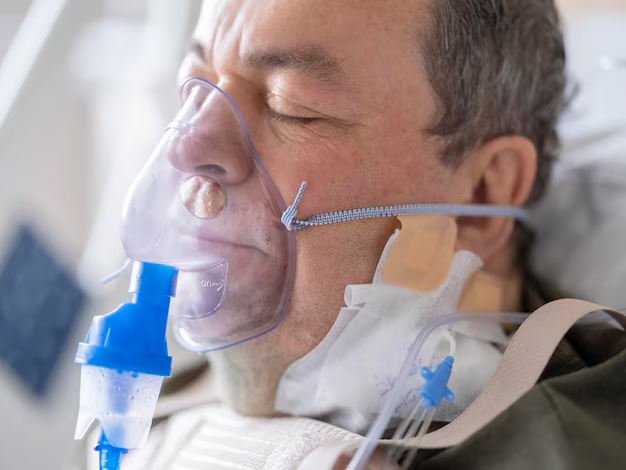Understanding the Contagiousness of Pneumonia After Antibiotics: Everything You Need to Know
Pneumonia—a term that often strikes concern for many due to its potentially severe symptoms and complications. As with many infectious diseases, the question of contagiousness looms large. If someone is diagnosed with pneumonia and begins antibiotic treatment, are they still contagious? Let’s unpack this concern and explore related facets to paint a complete picture.
What is Pneumonia?
Pneumonia is an infection that inflames the air sacs in one or both lungs, which may fill with fluid or pus, causing a range of symptoms from mild to severe. Common symptoms include:
- Cough (with phlegm or pus)
- Fever and chills
- Difficulty breathing
Pneumonia can be caused by a variety of pathogens, including bacteria, viruses, and fungi. Understanding the cause is crucial, as it influences treatment and determines the contagiousness of the condition.
Types of Pneumonia
- Bacterial Pneumonia: Often caused by Streptococcus pneumoniae. It typically requires antibiotic treatment.
- Viral Pneumonia: Commonly associated with viruses like influenza. Antibiotics are ineffective here.
- Mycoplasma Pneumonia: Caused by the bacteria Mycoplasma pneumoniae. Sometimes referred to as "walking pneumonia."
- Fungal Pneumonia: Rare and typically affects individuals with weakened immune systems.
Antibiotics: The Go-To Treatment for Bacterial Pneumonia
For bacterial pneumonia, antibiotics are the frontline defense, drastically improving outcomes when administered promptly. But does starting antibiotic treatment mean the infection is no longer contagious?
How Antibiotics Work
Antibiotics specifically target bacteria, either by killing them or inhibiting their growth. This action reduces the bacterial load in the body, leading to symptom relief and decreased risk of transmission. However, it's important to note that:
- The infectious period may vary.
- Not all pneumonia is bacterial.
Contagiousness: What Changes After Antibiotics?
The contagiousness of pneumonia hinges on its cause. Antibiotics affect bacterial pneumonia’s contagious period, but the timing is key.
When is Pneumonia Contagious?
- Bacterial Pneumonia: Generally contagious until antibiotics have been taken for 24 to 48 hours, as the bacterial load decreases.
- Viral Pneumonia: May remain contagious for a longer period as antibiotics do not kill viruses.
- Mycoplasma Pneumonia: Contagious for up to two weeks; antibiotics help but don’t always eliminate transmission risk immediately.
Factors Influencing Contagiousness:
- Type and virulence of the organism
- Patient’s immune response
- Early and effective treatment onset
Related Concerns and Considerations
Recognizing the broader context associated with pneumonia and contagiousness further enlightens patients and caregivers alike.
The Role of Vaccination
Vaccines play a preventive role against certain types of pneumonia-causing pathogens. Common vaccines include:
- Pneumococcal vaccines
- Flu shots (as viral infections can lead to viral pneumonia)
Symptom Monitoring and Self-Care
Even after antibiotics, monitoring symptoms closely helps in assessing recovery and preventing transmission.
Self-Care Practices:
- Adequate rest allows your immune system to function optimally.
- Hydration helps loosen mucus in the lungs.
- Hand hygiene is critical to prevent the spread of infection.
Community and Public Health Implications
Beyond individual cases, understanding pneumonia's contagious nature has implications for public health strategies and community well-being.
Preventive Measures
To mitigate the spread, especially in vulnerable settings like hospitals and nursing homes:
- Isolation protocols may be implemented.
- Educating patients on when it’s safe to resume normal activities minimizes community risk.
Supporting Vulnerable Populations
People with underlying health conditions, the elderly, and young children are particularly susceptible to complications from pneumonia. Thus, they should receive attentive care and preventive measures.
Final Thoughts on Pneumonia Contagiousness
Deciphering the contagious nature of pneumonia, especially after antibiotics, is a complex yet critical task. Understanding the specific cause and course of the infection, the timely use of antibiotics, and the individual’s health status collectively determine the transmission risk.
Practical Takeaways
Incorporating preventative actions such as vaccinations and hygiene practices can buffer against infection and transmission, fostering a healthier community. Equipped with knowledge and preventive perspectives, we contribute positively to public health.
Quick Summary: Pneumonia and Contagiousness 🌡️🦠
- Bacterial Pneumonia: Less contagious 24-48 hours post-antibiotics.
- Viral Pneumonia: Remains contagious longer; antibiotics are ineffective.
- Preventive Actions: Vaccination, hygiene, and self-care are key.
- Public Health: Minimize risk through isolation and education.
By thoroughly understanding these intricacies, individuals can make informed decisions, prioritize health, and contribute to broader disease control efforts.

Related Articles
- a Typical Pneumonia
- Can a Cold Turn Into Pneumonia
- Can a Sinus Infection Turn Into Pneumonia
- Can Amoxicillin Cure Pneumonia
- Can Amoxicillin Treat Pneumonia
- Can Baby Oil Cause Pneumonia
- Can Bronchitis Turn Into Pneumonia
- Can Covid Turn Into Pneumonia
- Can Doxycycline Treat Pneumonia
- Can Flu Turn Into Pneumonia
